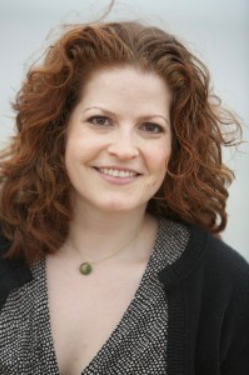 Schippert + Martin Photography
Schippert + Martin Photography by Joanne Soolman, MS, RD, LDN
I am a registered dietitian who specializes in working with individuals who struggle with eating disorders and disordered eating. My eyes were opened up to Health At Every Size® about two years ago, and it has had a huge impact on how I work with my patients as well as how I am working through my own body/weight/food issues.
Ever since I was little, I was on the chubbier side. Not fat, exactly, but bigger than the other girls. As a result of this — and with the “OMGDEATHFAT” messages I received from my family (especially my mother), peers, and doctors — I began a life-long mission to become thin. My sister, who is nine years older than I am, is the only other person in our family who has had similar weight struggles. We both received the same message: fat = bad, unhealthy, undesirable; thin = good, healthy, and successful. Given that, we both spent much of our lives dieting, losing weight, and then regaining it.
My sister continued to diet, lose weight, regain it, and repeat until about eight years ago when she “finally” lost the weight (about 50 pounds) and kept it off with Weight Watchers, a program that she had been on and off for a number of years. In addition, she decided to become a WW leader. That has been her career ever since. An actress by training, my sister thrives in an environment where she has a captive audience. Since she is keeping her weight lower, she is therefore the “expert” and the WW members in her groups look up to her.
I took a different path. While I also dieted, lost weight, regained, and repeated, I decided to learn more about nutrition so that I could help myself and others. I went back to school, where I earned a master’s degree in nutrition and health promotion and completed the program to become a registered dietitian. Given my undergraduate degree in psychology, working with eating disorders seemed like a perfect fit for me. While I had never had a full-out ED myself, I definitely had engaged in disordered eating from time to time.
As my sister and I have continued in our careers, our views on food, weight, and the body have begun to drastically differ. She continues to believe in and condone the idea that fat = bad and the idea that the only way for fat people to be healthy is to lose weight by following Weight Watchers. I have been practicing HAES and intuitive eating myself, as well as in my work with my patients. After years of the diet-lose-regain cycle, my weight has settled at a much higher point, while my sister continues to keep her weight lower by obsessing over points and living with the threat of losing her job if she gains weight.
For the most part, my sister and I have agreed to disagree. We try to avoid talking about weight/body/food around each other, as it is a huge trigger. It’s difficult for me to be around her, as she is the exception to the weight-loss/regain rule, which makes me feel like a “failure,” since I am fat. She also gets a lot of respect and admiration from peers, friends, and family. They will often seek nutrition advice from her instead of me, despite my education and training in the field. My sister never went to school for nutrition and has no dietetic training, but since she is a weight loss “success” story, she is automatically the go-to girl for all questions nutrition. Conversely, even though I have more than thee years of nutrition schooling and training and have been a practicing dietitian for five years, the fact that I am fat automatically means I don’t know what I’m doing.
Recently, my sister began appearing in two different television commercials for Weight Watchers, advertising their new consultant program. The ads consist of seven or eight different WW leaders talking straight into the camera. In one ad, the leaders talk about how the consumer can just pick up the phone and call a “coach” when facing a daunting food situation. In the other ad, the leaders talk about their own weight-loss journeys, some of them holding up their “before” pictures and saying how Weight Watchers changed their lives. The leaders talk about how they can help the consumer lose weight and keep it off, since they did it. My sister plays a prominent role in the second commercial. She says, “I was overweight for a really long time. And now I’m not! We understand, we’ve been there, we’re still going through it. I know you can do it, because I did it.”
I love my sister. I know that in her heart of hearts, she is a good person and really believes that she is helping people, not harming them. While I am happy for her career success, I have felt very conflicted about the commercials, as Weight Watchers is in direct contrast to what I truly believe, how I perform my job, and how I live my life. I believe that people have the right to make their own choices and decisions about whether/how they take care of themselves — if you want to diet, that’s your prerogative. What I take issue with is Weight Watchers as a corporation exploiting individuals and telling us we are less-than if we are fat, or that there is something wrong with us if we choose to eat for reasons other than just hunger. It is a billion-dollar business built on making people feel badly about themselves, and I just can’t support that.
Not only does Weight Watchers profit by making the consumer feel less-than, it fails to produce on its promises. As we all have heard many times before, diets fail 95 percent of the time, meaning only 5 percent of weight-loss attempts are sustainable. WW leaders fall into that elusive 5 percent. When the coaches in the new WW commercials say things like, “I know you can do it, because I did it,” it is completely misleading. These people are the exception to the rule, not the rule. Out of the millions of people who see these commercials and decide to do Weight Watchers, only a very small percentage of them will actually “succeed” by losing weight and keeping it off. How can Weight Watchers claim “It Works” when 95 percent of the time it doesn’t!?
When you think about it from an economic perspective, the Weight Watchers business model is genius: 1) Convince the consumer that he/she is not good enough (e.g. lazy, fat, unhealthy, hopeless); 2) Sell the consumer the idea that Weight Watchers will solve all of their problems; 3) Reinforce the idea that when consumers inevitably go off Weight Watchers and regain the weight, they are to blame, not the diet; 4) Entice WW dropouts to come back for more. If Weight Watchers really truly “worked,” then they would be out of business fast! They keep on having repeat customers because the product is faulty, but Weight Watchers convinces the consumers they are “weak-willed,” and that is why the diet failed. And this results in major profits.
While the commercials on their own are triggering and disturbing for me, the feelings are magnified by my sister’s involvement. It makes me very sad that my sister has not only joined the cult of Weight Watchers, but is actively spreading its damaging message. To keep the peace and not sever my relationship with her, I congratulated her on the ad and told her I love her. But in my home, I choose to immediately change the channel (or fast forward on DVR) whenever the commercial comes on.
Joanne Soolman is a registered dietitian and co-owner of Soolman Nutrition and Wellness, LLC, located in Wellesley, Massachusetts. She and her husband Jonah, who is also a registered dietitian, provide outpatient nutrition counseling services for those in southeastern New England. Joanne got her BA in Psychology from Brown University and her MS in Nutrition and Health Promotion from Simmons College. Joanne specializes in nutrition counseling for individuals struggling with eating disorders and disordered eating. In addition to being a professional member of the Multiservice Eating Disorder Association, she is a proud member of the Association for Size Diversity and Health, promoting the principles of Health at Every Size®.
I am a registered dietitian who specializes in working with individuals who struggle with eating disorders and disordered eating. My eyes were opened up to Health At Every Size® about two years ago, and it has had a huge impact on how I work with my patients as well as how I am working through my own body/weight/food issues.
Ever since I was little, I was on the chubbier side. Not fat, exactly, but bigger than the other girls. As a result of this — and with the “OMGDEATHFAT” messages I received from my family (especially my mother), peers, and doctors — I began a life-long mission to become thin. My sister, who is nine years older than I am, is the only other person in our family who has had similar weight struggles. We both received the same message: fat = bad, unhealthy, undesirable; thin = good, healthy, and successful. Given that, we both spent much of our lives dieting, losing weight, and then regaining it.
My sister continued to diet, lose weight, regain it, and repeat until about eight years ago when she “finally” lost the weight (about 50 pounds) and kept it off with Weight Watchers, a program that she had been on and off for a number of years. In addition, she decided to become a WW leader. That has been her career ever since. An actress by training, my sister thrives in an environment where she has a captive audience. Since she is keeping her weight lower, she is therefore the “expert” and the WW members in her groups look up to her.
I took a different path. While I also dieted, lost weight, regained, and repeated, I decided to learn more about nutrition so that I could help myself and others. I went back to school, where I earned a master’s degree in nutrition and health promotion and completed the program to become a registered dietitian. Given my undergraduate degree in psychology, working with eating disorders seemed like a perfect fit for me. While I had never had a full-out ED myself, I definitely had engaged in disordered eating from time to time.
As my sister and I have continued in our careers, our views on food, weight, and the body have begun to drastically differ. She continues to believe in and condone the idea that fat = bad and the idea that the only way for fat people to be healthy is to lose weight by following Weight Watchers. I have been practicing HAES and intuitive eating myself, as well as in my work with my patients. After years of the diet-lose-regain cycle, my weight has settled at a much higher point, while my sister continues to keep her weight lower by obsessing over points and living with the threat of losing her job if she gains weight.
For the most part, my sister and I have agreed to disagree. We try to avoid talking about weight/body/food around each other, as it is a huge trigger. It’s difficult for me to be around her, as she is the exception to the weight-loss/regain rule, which makes me feel like a “failure,” since I am fat. She also gets a lot of respect and admiration from peers, friends, and family. They will often seek nutrition advice from her instead of me, despite my education and training in the field. My sister never went to school for nutrition and has no dietetic training, but since she is a weight loss “success” story, she is automatically the go-to girl for all questions nutrition. Conversely, even though I have more than thee years of nutrition schooling and training and have been a practicing dietitian for five years, the fact that I am fat automatically means I don’t know what I’m doing.
Recently, my sister began appearing in two different television commercials for Weight Watchers, advertising their new consultant program. The ads consist of seven or eight different WW leaders talking straight into the camera. In one ad, the leaders talk about how the consumer can just pick up the phone and call a “coach” when facing a daunting food situation. In the other ad, the leaders talk about their own weight-loss journeys, some of them holding up their “before” pictures and saying how Weight Watchers changed their lives. The leaders talk about how they can help the consumer lose weight and keep it off, since they did it. My sister plays a prominent role in the second commercial. She says, “I was overweight for a really long time. And now I’m not! We understand, we’ve been there, we’re still going through it. I know you can do it, because I did it.”
I love my sister. I know that in her heart of hearts, she is a good person and really believes that she is helping people, not harming them. While I am happy for her career success, I have felt very conflicted about the commercials, as Weight Watchers is in direct contrast to what I truly believe, how I perform my job, and how I live my life. I believe that people have the right to make their own choices and decisions about whether/how they take care of themselves — if you want to diet, that’s your prerogative. What I take issue with is Weight Watchers as a corporation exploiting individuals and telling us we are less-than if we are fat, or that there is something wrong with us if we choose to eat for reasons other than just hunger. It is a billion-dollar business built on making people feel badly about themselves, and I just can’t support that.
Not only does Weight Watchers profit by making the consumer feel less-than, it fails to produce on its promises. As we all have heard many times before, diets fail 95 percent of the time, meaning only 5 percent of weight-loss attempts are sustainable. WW leaders fall into that elusive 5 percent. When the coaches in the new WW commercials say things like, “I know you can do it, because I did it,” it is completely misleading. These people are the exception to the rule, not the rule. Out of the millions of people who see these commercials and decide to do Weight Watchers, only a very small percentage of them will actually “succeed” by losing weight and keeping it off. How can Weight Watchers claim “It Works” when 95 percent of the time it doesn’t!?
When you think about it from an economic perspective, the Weight Watchers business model is genius: 1) Convince the consumer that he/she is not good enough (e.g. lazy, fat, unhealthy, hopeless); 2) Sell the consumer the idea that Weight Watchers will solve all of their problems; 3) Reinforce the idea that when consumers inevitably go off Weight Watchers and regain the weight, they are to blame, not the diet; 4) Entice WW dropouts to come back for more. If Weight Watchers really truly “worked,” then they would be out of business fast! They keep on having repeat customers because the product is faulty, but Weight Watchers convinces the consumers they are “weak-willed,” and that is why the diet failed. And this results in major profits.
While the commercials on their own are triggering and disturbing for me, the feelings are magnified by my sister’s involvement. It makes me very sad that my sister has not only joined the cult of Weight Watchers, but is actively spreading its damaging message. To keep the peace and not sever my relationship with her, I congratulated her on the ad and told her I love her. But in my home, I choose to immediately change the channel (or fast forward on DVR) whenever the commercial comes on.
Joanne Soolman is a registered dietitian and co-owner of Soolman Nutrition and Wellness, LLC, located in Wellesley, Massachusetts. She and her husband Jonah, who is also a registered dietitian, provide outpatient nutrition counseling services for those in southeastern New England. Joanne got her BA in Psychology from Brown University and her MS in Nutrition and Health Promotion from Simmons College. Joanne specializes in nutrition counseling for individuals struggling with eating disorders and disordered eating. In addition to being a professional member of the Multiservice Eating Disorder Association, she is a proud member of the Association for Size Diversity and Health, promoting the principles of Health at Every Size®.
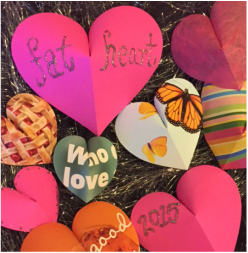
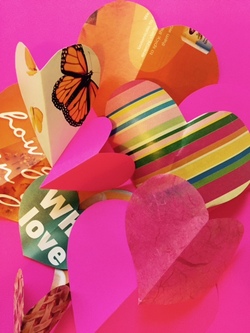
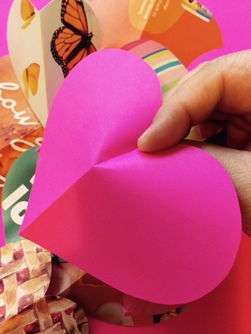

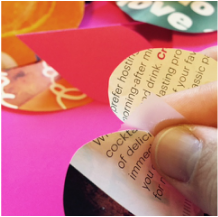
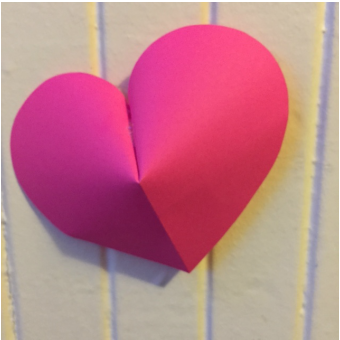
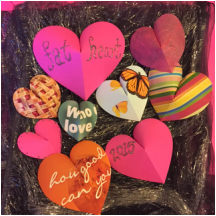
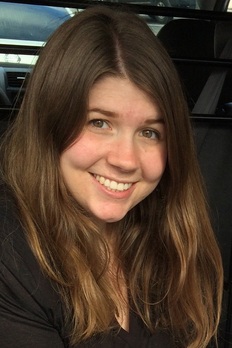
 RSS Feed
RSS Feed
